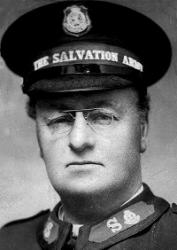Planning worship?
Check out our sister site, ZeteoSearch.org,
for 20+ additional resources related to your search.
- |
User Links
Person Results
E. Martinez Garza
Scripture: 1 Samuel 17 Author of "Soldados de Cristo" in Himnos de Gloria
E. Martinez Garza
George C. Stebbins

1846 - 1945 Person Name: Geo. C. Stebbins Scripture: 1 Samuel 17 Composer of "[Soldados de Cristo que estáis en la lid]" in Himnos de Gloria Stebbins studied music in Buffalo and Rochester, New York, then became a singing teacher. Around 1869, he moved to Chicago, Illinois, to join the Lyon and Healy Music Company. He also became the music director at the First Baptist Church in Chicago. It was in Chicago that he met the leaders in the Gospel music field, such as George Root, Philip Bliss, & Ira Sankey.
At age 28, Stebbins moved to Boston, Massachusetts, where he became music director at the Claredon Street Baptist Church; the pastor there was Adoniram Gordon. Two years later, Stebbins became music director at Tremont Temple in Boston. Shortly thereafter, he became involved in evangelism campaigns with Moody and others. Around 1900, Stebbins spent a year as an evangelist in India, Egypt, Italy, Palestine, France and England.
(www.hymntime.com/tch)
George C. Stebbins
John Bunyan

1628 - 1688 Person Name: John Bunyan, 1628-1688 Scripture: 1 Samuel 17 Author of "Who would true valour see" in Singing the Faith Bunyan, John. This great allegorist cannot be included amongst hymn writers, except on the ground that the piece, “He that is down needs fear no fall," from pt. ii. of his Pilgrim's Progress, 1684, is given in a limited number of hymnals. The son of a mechanic, he was born at Elstow, 1628; was a Baptist minister at Bedford; and died in London, Aug. 1688.
-- John Julian, Dictionary of Hymnology (1907)
===================================
Bunyan, John, p. 193, ii. Another piece by him is "Valiant's song" in the Pilgrim's Progress, pt. ii., 1684 (2nd edition 1686, p. 177). There, and in E. P. Hood's Our Hymn Book1873, no. 398, it begins "Who would true valour see" (A Pilgrim's Song). In the English Hymnal, 1906, No. 402, it is partly rewritten, and begins "He who would valiant be." [Rev. James Mearns. M.A.]
--John Julian, Dictionary of Hymnology, New Supplement (1907)
John Bunyan
Ralph Vaughan Williams

1872 - 1958 Person Name: Ralph Vaughan Williams, 1872-1958 Scripture: 1 Samuel 17 Adapter of "MONKS GATE" in Singing the Faith Through his composing, conducting, collecting, editing, and teaching, Ralph Vaughan Williams (b. Down Ampney, Gloucestershire, England, October 12, 1872; d. Westminster, London, England, August 26, 1958) became the chief figure in the realm of English music and church music in the first half of the twentieth century. His education included instruction at the Royal College of Music in London and Trinity College, Cambridge, as well as additional studies in Berlin and Paris. During World War I he served in the army medical corps in France. Vaughan Williams taught music at the Royal College of Music (1920-1940), conducted the Bach Choir in London (1920-1927), and directed the Leith Hill Music Festival in Dorking (1905-1953). A major influence in his life was the English folk song. A knowledgeable collector of folk songs, he was also a member of the Folksong Society and a supporter of the English Folk Dance Society. Vaughan Williams wrote various articles and books, including National Music (1935), and composed numerous arrangements of folk songs; many of his compositions show the impact of folk rhythms and melodic modes. His original compositions cover nearly all musical genres, from orchestral symphonies and concertos to choral works, from songs to operas, and from chamber music to music for films. Vaughan Williams's church music includes anthems; choral-orchestral works, such as Magnificat (1932), Dona Nobis Pacem (1936), and Hodie (1953); and hymn tune settings for organ. But most important to the history of hymnody, he was music editor of the most influential British hymnal at the beginning of the twentieth century, The English Hymnal (1906), and coeditor (with Martin Shaw) of Songs of Praise (1925, 1931) and the Oxford Book of Carols (1928).
Bert Polman
Ralph Vaughan Williams
Arthur Arnott

1870 - 1941 Person Name: Arthus Arnott Scripture: 1 Samuel 17 Author of "Only a Boy Named David" in Sing With Me
Arthur Arnott
Michael Forster
b. 1946 Person Name: Michael Forster, b. 1946 Scripture: 1 Samuel 17:4-50 Author of "Goliath was big and Goliath was strong (Biggest isn't always best)" in Complete Anglican Hymns Old and New
Michael Forster
Christopher Tambling
1964 - 2015 Person Name: Christopher Tambling, b. 1964 Scripture: 1 Samuel 17:4-50 Composer of "[Goliath was big and Goliath was strong]" in Complete Anglican Hymns Old and New
Christopher Tambling


 My Starred Hymns
My Starred Hymns


